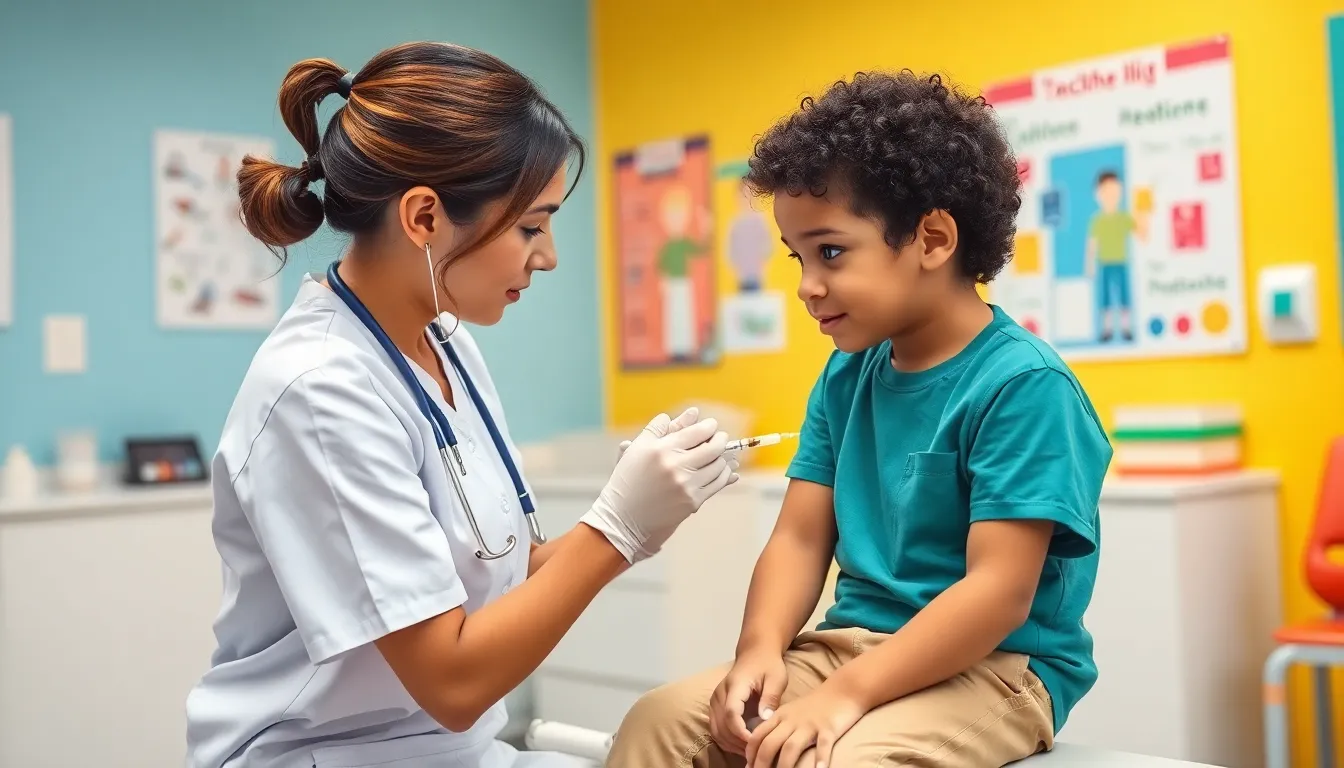Preventive care is more than just a check-up; it’s a holistic approach to maintaining health and well-being. I’ve seen firsthand how all-inclusive preventive care can transform lives by focusing on early detection and lifestyle management. This proactive strategy not only helps in preventing diseases but also empowers individuals to take charge of their health.
In a world where healthcare costs are skyrocketing, embracing all-inclusive preventive care is a smart choice. It offers comprehensive services that address physical, mental, and emotional health. I believe that when we prioritize preventive measures, we can significantly reduce the burden of chronic illnesses and enhance our quality of life. Let’s dive into the essentials of this approach and discover how it can benefit us all.
Table of Contents
ToggleKey Takeaways
- Holistic Approach: All-inclusive preventive care emphasizes a comprehensive strategy that integrates physical, mental, and emotional health for overall well-being.
- Early Detection: Regular check-ups and screenings play a crucial role in identifying potential health issues early, which enables timely intervention and improved outcomes.
- Importance of Vaccinations: Staying current with vaccinations helps prevent various infectious diseases and contributes to community immunity, protecting both individual and public health.
- Lifestyle Counseling: Tailored lifestyle and nutrition counseling supports informed decision-making, encourages sustainable healthy habits, and reduces the risk of chronic diseases.
- Cost-Effectiveness: Investing in preventive care can lead to significant savings by avoiding expensive treatments associated with advanced illnesses and reducing healthcare-related expenses.
- Addressing Challenges: Overcoming accessibility issues and enhancing patient awareness are essential for maximizing the benefits of all-inclusive preventive care.
Overview of All Inclusive Preventive Care
All-inclusive preventive care encompasses a wide range of services designed to promote health and prevent disease. This approach integrates physical examinations, screenings, vaccinations, and counseling into a cohesive health strategy. It emphasizes early detection of potential health issues, enabling timely intervention that can significantly alter health outcomes.
All-inclusive preventive care includes:
- Regular Check-Ups: Comprehensive assessments by healthcare professionals that help monitor health status.
- Screenings: Tests such as blood pressure monitoring, cholesterol checks, and cancer screenings that identify risks early.
- Vaccinations: Immunizations that protect against various diseases and enhance community health.
- Lifestyle Counseling: Guidance on nutrition, exercise, and stress management tailored to individual needs.
This holistic method reduces the likelihood of chronic diseases, ultimately lowering healthcare costs. By focusing on prevention, I can cultivate better health habits and lead a more fulfilling life. All-inclusive preventive care’s proactive stance empowers me to make informed decisions regarding my health and well-being.
Key Components of All Inclusive Preventive Care
All-inclusive preventive care incorporates essential services that foster optimal health. Focusing on comprehensive measures ensures early intervention and lifestyle enhancement.
Routine Health Screenings
Routine health screenings identify potential health issues early. Regular assessments, including blood pressure checks, cholesterol levels, and cancer screenings, play a crucial role. For example, women should undergo mammograms starting at age 40, while men should consider prostate exams from age 50. Health professionals recommend screenings at specific intervals to effectively monitor risk factors and track health changes over time. Following guidelines increases the chance of detecting conditions like diabetes or hypertension in their early stages.
Vaccinations and Immunizations
Vaccinations and immunizations protect individuals from infectious diseases. Each vaccine offers specific benefits, such as the flu shot reducing the risk of seasonal influenza. Children require vaccinations, like the measles, mumps, and rubella (MMR) vaccine, to ensure community immunity. Adults also need immunizations, including tetanus boosters and the shingles vaccine after age 50. Staying current with recommended vaccines not only safeguards individual health but also contributes to public health efforts by preventing disease outbreaks.
Lifestyle and Nutrition Counseling
Lifestyle and nutrition counseling emphasizes healthy habits that support overall well-being. Tailored plans address dietary choices, physical activity, and stress management. For instance, a registered dietitian might help develop a meal plan rich in whole foods, while a personal trainer could create a customized exercise routine. Incorporating regular physical activity, balanced nutrition, and stress-reduction strategies fosters better health outcomes and decreases the risk of chronic diseases. Seeking guidance in these areas empowers individuals to make informed choices that lead to a healthier lifestyle.
Benefits of All Inclusive Preventive Care
All-inclusive preventive care offers numerous advantages that significantly impact individual health and overall well-being. Both improved health outcomes and cost-effectiveness play crucial roles in the effectiveness of this approach.
Improved Health Outcomes
Improved health outcomes stem from early detection and timely intervention. Regular health screenings, such as blood pressure evaluations and cancer tests, identify problems before they escalate. Vaccinations play a key role in preventing infectious diseases, contributing to community immunity. Comprehensive lifestyle and nutrition counseling encourages personalized health plans, promoting sustainable habits. By embracing these preventive measures, individuals experience lower rates of chronic illnesses and enhanced quality of life.
Cost-Effectiveness
Cost-effectiveness emerges as one of the primary advantages of all-inclusive preventive care. By addressing health issues early, individuals can avoid costly treatments associated with advanced diseases. Preventive care reduces hospital admissions and emergency visits, leading to substantial savings in healthcare expenses. The focus on lifestyle modifications further decreases the risk of chronic diseases, which often demand long-term, expensive management. Investing in preventive care yields significant returns in the form of reduced healthcare costs and improved life expectancy.
Challenges in Implementing All Inclusive Preventive Care
Implementing all-inclusive preventive care presents various challenges that can hinder its effectiveness. Addressing these issues is crucial for maximizing the benefits of such a comprehensive approach.
Accessibility Issues
Accessibility to preventive care services plays a pivotal role. Geographic barriers often limit individuals in underserved communities from reaching healthcare facilities. For instance, rural areas may lack specialized clinics that offer preventive screenings, vaccinations, and counseling. Financial constraints also pose a significant challenge; many people face high out-of-pocket costs for services that should be universally available. Furthermore, transportation issues can prevent individuals from attending appointments, thereby reducing participation in preventive programs. Addressing accessibility requires an integrated approach, including mobile health units and telehealth options.
Patient Awareness and Engagement
Patient awareness and engagement are vital for the success of all-inclusive preventive care. Many individuals lack understanding of the available services and their importance. For example, myths surrounding vaccinations can deter individuals from receiving necessary immunizations. Additionally, limited health literacy affects people’s ability to recognize symptoms or risk factors, impeding early detection. Active engagement strategies, such as community outreach and educational workshops, can enhance knowledge and motivate individuals to prioritize preventive care. Fostering a culture of prevention involves clear communication and ongoing support to keep patients informed and involved in their health decisions.
Embracing all-inclusive preventive care is a vital step toward a healthier future. By prioritizing early detection and lifestyle management, I can take control of my health and well-being. This holistic approach not only reduces the risk of chronic diseases but also offers significant cost savings in the long run.
While challenges remain in accessing these services, innovative solutions and community engagement can bridge the gap. It’s essential for me and others to stay informed and actively participate in preventive measures. By doing so, I can cultivate better health habits and ultimately enhance my quality of life. Investing in preventive care today paves the way for a healthier tomorrow.




